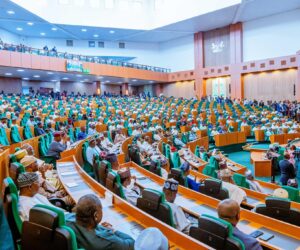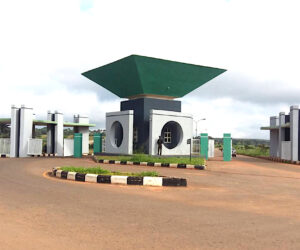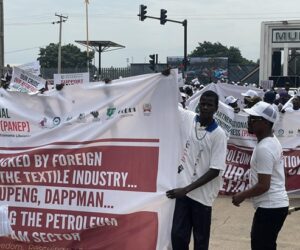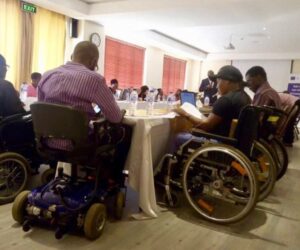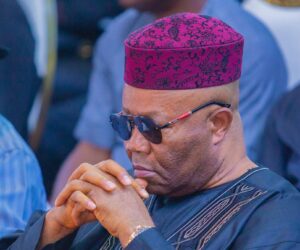A broad coalition of political leaders, civil society advocates, labour figures, and democracy campaigners has launched a new national movement aimed at rescuing Nigeria’s electoral system from decades of manipulation, insecurity, and institutional decay.
The coalition, known as the Movement for Credible Elections (MCE), emerged from the 2025 National Political Summit on Credible Elections and Political Stability of Nigeria, held on Tuesday in Abuja.
Convened by the National Consultative Front (NCFront) in partnership with the Labour & Civil Society Front (LCSF), the summit brought together more than 600 delegates representing political parties, government agencies, the private sector, the diaspora community, academia, and civic networks.
Themed “Critical & Mandatory Constitutional Amendments for Credible Elections in 2027,” the gathering sought to develop a unified national framework for rescuing Nigeria’s electoral process ahead of the next general election.
The event opened with messages from former President Goodluck Jonathan; former Vice President Yemi Osinbajo; Kano State Governor Abba Yusuf; former Rivers State Governor Rotimi Amaechi; and former presidential candidate Peter Obi.
Other prominent contributors included NLC President Joe Ajaero; Pat Utomi, who chaired the organising committee; former Minister and keynote speaker Oby Ezekwesili; Shehu Sani; IPAC Chairman Mamman Dantalle; Gbenga Olawepo-Hashim; and legal expert Adewole Adebayo.
Summit warns of deepening insecurity
Discussions were dominated by concerns over Nigeria’s worsening security crisis and the implications of external warnings, particularly from United States President Donald Trump, on the country’s internal political stability.
Speakers argued that the government’s failure to address rising banditry, terrorism, and violent crime has emboldened non-state actors and weakened public trust in state authority.
They warned that Nigeria’s sovereignty is now vulnerable to foreign intervention because the state has failed in its primary obligation to guarantee safety.
Delegates described the deteriorating security landscape as a direct threat to the 2027 elections, noting that large swathes of the country may be inaccessible if urgent reforms are not implemented. Many insisted that credible elections cannot take place under an atmosphere of fear, forced displacement, and systemic voter suppression.
Participants also criticised Nigeria’s political parties, noting their weak internal democracy, abuse of candidate-selection processes, and poor regulation.
They argued that political parties have become platforms for transactional politics rather than institutions responsible for producing credible leaders. This, they said, has created a governance crisis in which unprepared or compromised individuals ascend to public office.
A call to end the culture of election rigging
Stakeholders unanimously condemned the entrenched culture of rigging, inducement, ballot snatching, vote suppression, falsification of results, and post-election litigation that has characterised Nigeria’s elections for decades.
They stressed that unless these practices are dismantled, the credibility of the 2027 polls will remain in doubt, and the legitimacy of the next government could be severely undermined.
Speakers noted that public confidence in elections has collapsed because outcomes often do not reflect votes cast at polling units.
Many recalled instances in past elections where judicial decisions, not citizens’ ballots, determined winners. This, they argued, has damaged Nigeria’s democracy and discouraged voter participation.
Far-reaching reform proposals adopted
At the end of deliberations, the summit adopted several recommendations aimed at transforming the country’s electoral architecture.
A major emphasis was placed on ensuring that the Independent National Electoral Commission (INEC) receives its funding directly from the Federation Account to prevent undue influence from any branch of government.
There was a strong call for the commission to operate an open budget system, allowing civil society to scrutinise its expenditures and procurement processes.
Stakeholders also insisted on granting INEC the constitutional authority to prosecute electoral offenders without relying on the Police or the Office of the Attorney-General.
They urged the National Assembly to legislate early voting, diaspora voting, electronic voting, and real-time electronic transmission of results, arguing that these mechanisms would drastically reduce manipulation.
“Early voting, diaspora voting, electronic voting, and real-time electronic transmission of results should be made legally mandatory to reduce or eradicate manipulation and circumvention of election results,” they said.
ALSO READ: 2019: Ezekwesili, CSOs plan new coalition to restructure Nigeria’s leadership
Another strong recommendation was the need to reform the process of appointing INEC commissioners. Delegates argued that appointments must be insulated from the Executive and entrusted to a broad mix of respected national stakeholders to ensure neutrality.
They further criticised the current trend where courts, rather than polling units, determine the final outcome of elections, describing it as an aberration that erodes public trust.
In addition, the summit called for a constitutional amendment that would provide special seats for women and vulnerable groups to ensure greater inclusivity in governance.
“The National Assembly should be compelled to provide for special seats for women and other vulnerable groups in the constitution to be elected and participate in governance.”
Delegates also proposed that the burden of proof in election petitions should shift from candidates to INEC, which should defend the results it declares.
One of the major highlights of the summit was the formal launch of the Movement for Credible Elections (MCE), envisioned as a broad national platform mobilising citizens ahead of 2027 to demand clean elections and challenge manipulation.
The movement seeks to build alliances across regions, ethnicities, professions, and political interests to ensure that rigging becomes politically costly and socially unacceptable.
Interim Steering Council
A 23-member Interim Steering Council was inaugurated to lead the new platform. Mr Utomi will serve as chairman, with former NLC President Ayuba Wabba as co-chair.
Other key leaders include Usman Bugaje (Deputy Chair, North), Nkoyo Toyo (Deputy Chair, South), human rights lawyer Femi Falana, Shehu Sani, Ankio Briggs, Bilikisu Magoro, Ene Obi, and Peter Ameh.
James Ezema, who signed the communiqué, was named Media Coordinator, while Olawale Okunniyi will head the secretariat.
The steering team also includes youth leaders, finance directors, mobilisation coordinators, and communication experts tasked with shaping the movement’s national outreach.
They are Alex Adum, Promise Adewusi, who serves as Director of Administration; Chris Uyot, Director of Mobilisation; Hamisu Turaki, Director of Mobilisation; Chris Iyovwaye, Director of Finance; Chris Azor, Director of Mobilisation; Mark Adebayo, Director of Mobilisation; Mustapha Nwaokobia, Director of Communications; Peter Akah, Director of Publicity; Kamal Ahmed, Youth Coordinator; and Hauwa Mustapha, Deputy Head of Secretariat.





